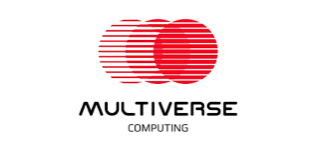
Multiverse Computing – Digital Twin for the Application of Quantum Computation in Hydrogen Generation Plants (GDH2)
Multiverse Computing
Sector: Energy
Business Case
The hydrogen electrolyser currently faces several problems. One of the main ones is energy efficiency, as the conversion of electricity to hydrogen can have significant losses. Component durability and service life are also challenges, as corrosion and wear can affect their long-term performance. In addition, the availability and cost of materials used in electrolysers are important considerations to be made. Finally, the effective integration of electrolysers into the power system and their response to the variability of renewable generation pose additional challenges. These issues must be addressed to make the hydrogen electrolyser a viable and efficient option for green hydrogen production.
Objectives
Investigate digital twin and quantum computing technologies for the optimisation of electrolysis applied to green hydrogen generation. Characterise a hydrogen plant and develop its digital twin. Research and parameterise the green hydrogen electrolysis process. Apply quantum computing algorithms to optimise the hydrogen generation process and the energy consumption of this process.
Use case
Solution: integration of quantum optimisation algorithms in the digital twin of the hydrogen generation process. It will be carried out in the following steps: (1) Develop the digital twin of a hydrogen plant; (2) Parameterise the green hydrogen electrolysis process; (3) Quantum algorithms to optimise green hydrogen production; (4) Integrate the quantum algorithm in the “digital twin”.
Infrastructure
Cloud
Technology
Quantum Machine learning and deep learning
Data
Public or private datasets + synthetic data generation.
Resources
For the development of the project, internal personnel from Multiverse and the rest of the partner entities were used, as well as access to quantum hardware (D-Wave).
Difficulties and learning
Difficulty in obtaining real data. Lack of knowledge about the digital twin of the electrolyser; for this reason, we collaborate closely with specialised engineering experts. Lack of validation in a real environment -> next phases of the project.
KPIs (business impact and metrics of the model)
Reduced emission (water). Vectorised electricity from renewable sources. Reduced production costs €5-8/kg (optimisation process).
Funding
The Innovative Business Groupings (AEI) (AEI-010500-2022b-317) support programme.
Collaborators, Partners
Idea Ingeniería and Ametic




